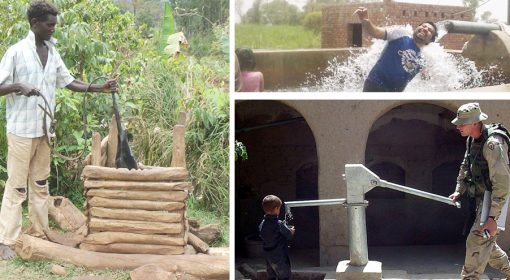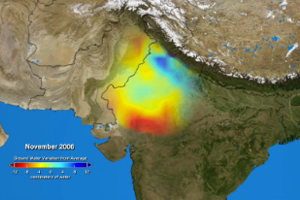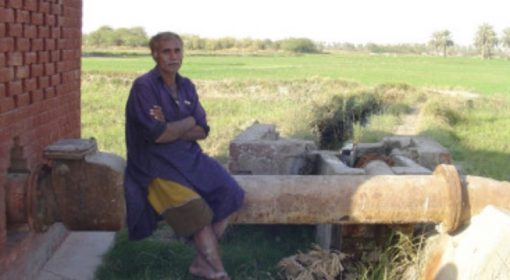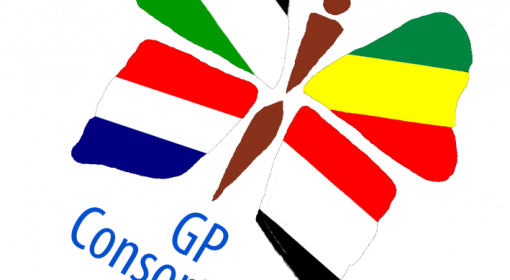This page provides an overview of groundwater research that is currently carried out. Please help us enrich this page by suggesting other research programs that you know of! Use the comments section below, or email us at info@thewaterchannel.tv
Groundwater Governance- A global framework for action
The project is designed to raise awareness of the importance of groundwater resources for many regions of the world, and identify and promote best practices in groundwater governance as a way to achieve the sustainable management of groundwater resources.
The first phase of the project consists of a review of the global situation of groundwater governance and aims to develop a Global Groundwater Diagnostic integrating regional and country experiences with prospects for the future. This first phase builds on a series of case studies, thematic papers and five regional consultations.
The second phase of the project will develop the main project outcome, a Global Framework for Action consisting of a set of policy and institutional guidelines, recommendations and best practices designed to improve groundwater management at country/local level, and groundwater governance at local, national and transboundary levels. The project runs over the duration 2011-14.
More info: www.groundwatergovernance.org
Innovative Storage of Flash Flood Water in Thailand’s Subsurface – An integrated and comprehensive way to tackle floods and droughts
This is a research paper by Mr. George G. van der Meulen. He puts forward an additional vision on how to tackle floods and droughts. In Thailand, as soon as the monsoon period ends, a dry period commences yearly, with frequent droughts as a consequence. Mr. van der Meulen proposes to store the flash flood water from the monsoon in Thailand’s subsurface, so that it can be used during the subsequent dry period.
Summarized in the slogan ‘use water, do not waste it’, the main features of the approach consist of:
- keeping the flood water due to monsoon rainstorms as much as possible at the precipitation sites
- re-directing a part of the run-off water to water retention bodies which are prepared for gravitational drainage
- storing the superfluous volume of water as much as possible in these water drainage bodies, next into shallow layers in the groundwater (simultaneously reducing the decline of the groundwater level, maybe even reduces land subsidence), and into the deeper subsurface situated aquifers
- offering adequate and improved opportunities of water extraction from the subsurface to farmers and other water demanding entities during periods of dry times, drought
Access the full PDF here
For more info, contact George van der Meulen, CKI, Compuplan Knowledge Institute of Applied geo-Informatics
Image courtesy: Wikimedia
Unlocking the Potential of Groundwater for the Poor (UPGro)
is a seven-year international research programme which is jointly funded by UK’s Department for International Development (DFID), Natural Environment Research Council (NERC) and the Economic and Social Research Council (ESRC). It focuses on improving the evidence base around groundwater availability and management in Sub-Saharan Africa (SSA) to enable developing countries and partners in SSA to use groundwater in a sustainable way in order to benefit the poor.
UPGro projects will be interdisciplinary, linking the social and natural sciences to address this challenge. They will be delivered through collaborative partnerships of the world’s best researchers. The programme’s success will be measured by the way that its research generates new knowledge which can be used to benefit the poor in a sustainable manner.
More info: http://www.nerc.ac.uk/research/programmes/upgro/index.asp?cookieConsent=A
Groundwater Footprint
Groundwater Footprintis a measure that reveals if groundwater is being overused or used sustainably in a region. Developed in 2012 through collaborative research by University of Utrecht and McGill University, the footprint compares how much groundwater flows into aquifers, how much humans use, and how much should be left for ecosystems.
The idea has received much attention worldwide. Discover magazine rated it as one of the top 100 science stories of 2012.
The interactive Groundwater Footprint map can be accessed at groundwaterfootprint.org
For more info, contact Tom Gleeson, McGill University
CoCooN- Groundwater in the Political Domain
CoCooN- Groundwater in the Political Domain (2009-13) is a research project that put access and management of groundwater on the political agenda in Ethiopia, the Palestinian Territories and Yemen. The use and management of groundwater is a big concern in these countries. Access to groundwater in the different areas is subject to power play, to severe overuse or it is managed by stealth. Conflicit has been a key factor; it has depleted groundwater resources and defined access in these countries.
The project produced a wide range of research and outreach products.
(Watch the videos here)
More info: http://goo.gl/dma9n2



